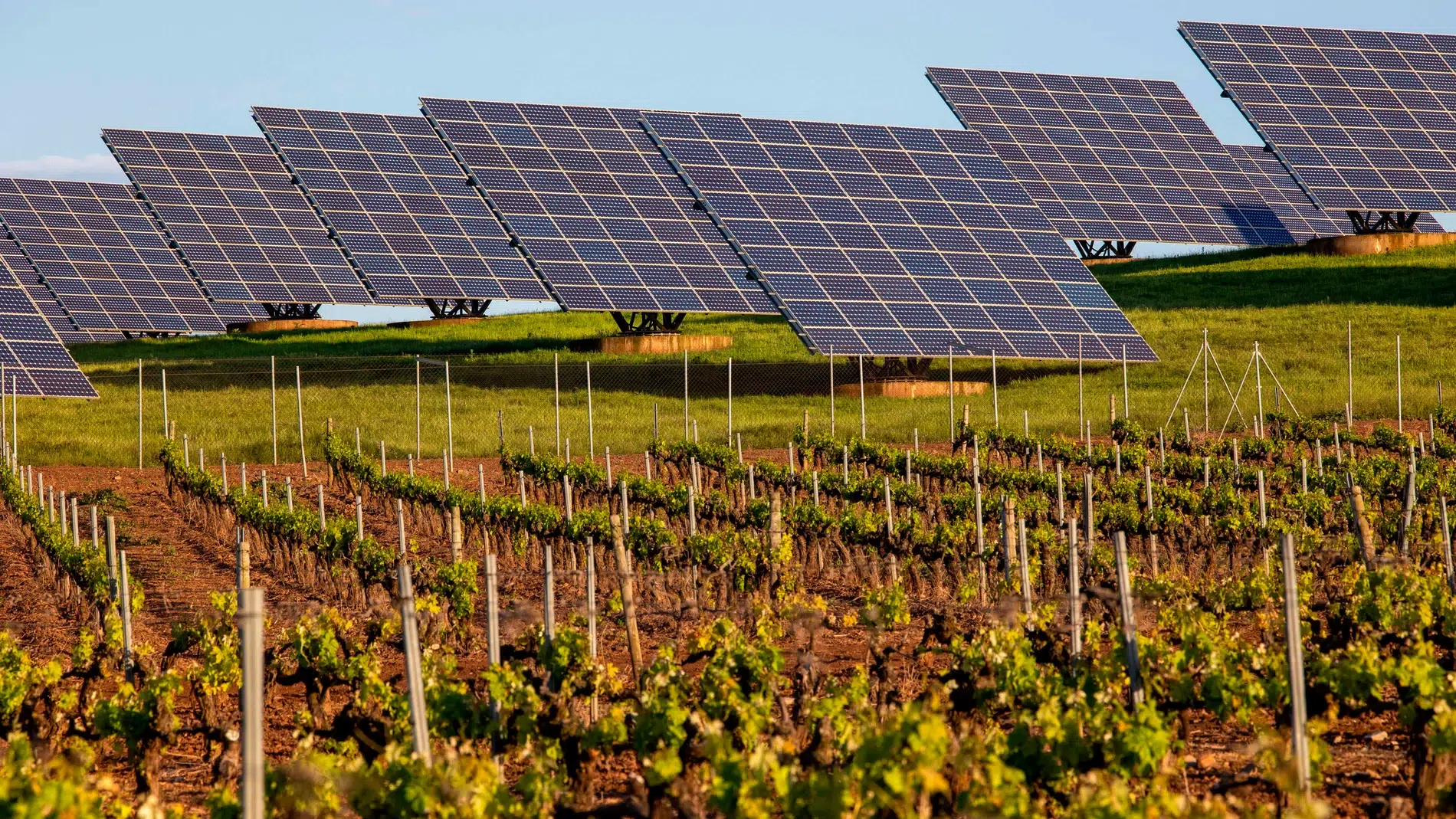The winegrowers of Marco de Jerez are once again on alert in the face of constant proliferation of renewable energy projects in the region. This situation has generated a wave of concern and mobilization on the part of the wine community.
This is the reason that could ruin winegrowers
Winegrowers, aware of the environmental benefits of clean energy, are alert to the possible impacts that these facilities could have on the local ecosystem and, therefore, on the quality of the vineyards and wine production.
This situation has given rise to an intense debate about how to balance the need for promote energy sustainability with the preservation of the wine tradition in the region. Winegrowers fear the massive presence of renewable energy infrastructure.


The news of new wind, photovoltaic or hybrid parks that have started the process of applying for environmental impact authorization before the Junta de Andalucía to be installed in the area of influence of various historical payments of Jerez has unleashed a new battle in the region. Renewable energy yes or no, then?
The growing proliferation of renewable energy projects in the Marco de Jerez has sparked concern and mobilization within the wine community. Winegrowers, aware of the environmental benefits of clean energy, are alert to the possible impacts that these facilities could have on the local ecosystem.
The battle for transparency in renewable energy projects in Andalusia
The approval of this measure aims to safeguard the vineyard while a special plan is developed to regulate the installation of renewable energy projects in the municipal area. Despite these measures, the lack of transparency in the initial phase of the processing makes it difficult to timely identify new projects underway, generating additional concerns among winegrowers.
The promoters of initiatives linked to renewable energy rely on the urban viability reports provided by local authorities before beginning the process to require approval from the Andalusian Government, according to César Saldaña, leader of the Regulatory Council.
However, the lack of public availability This information quickly raises concerns among grape growers, since they cannot acquire details about these essential reports at the initial stage of the projects.
César Saldaña deciphers the enigmas of renewable energies in Jerez
The president of the Jerez wine institution, César Saldaña, highlights the need for transparency in the approval process of urban compatibility. He requests information on who approves this compatibility, how it is carried out and how many reports there are.
The lack of clarity about this renewable energy project raises concern among winegrowerswho sometimes only become aware of some projects when the promoters’ salespeople visit to make offers for land.
Saldaña points out that this not only creates uncertainty, but also generates tensions between vineyard owners, since a mill economically benefits only the owner of the land where it is installed, affecting others around it.
The president of the Wine Regulatory Council expresses his concern about the proliferation of wind turbines and solar panels in the Balbaína area. They fear a “terrifying” situation and demand to know the situation inherited from urban compatibility reports issued by previous governments, of which they have no record.
In addition, they announce the request to the municipalities of El Puerto and Sanlúcar to modify their general urban planning plans and adopt transitional measures similar to those implemented by the government of Jerez to protect the vineyard from invasive renewable energy projects that could significantly harm the development of their businesses as winegrowers.

